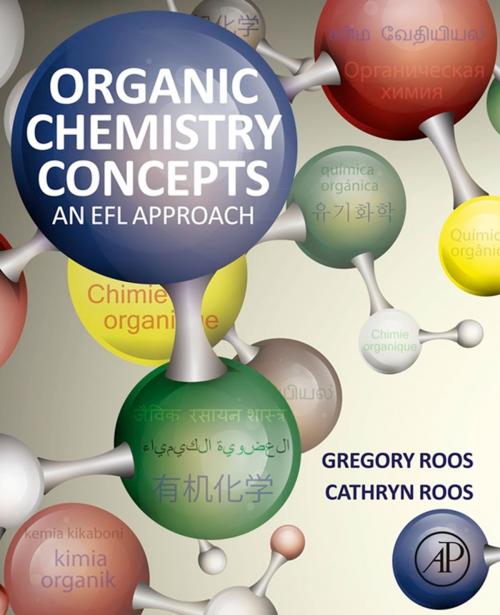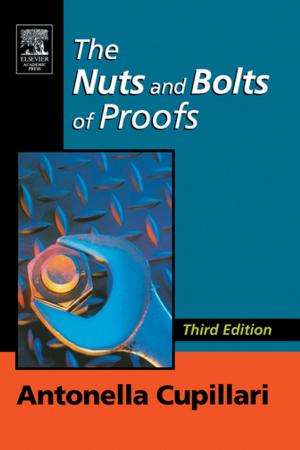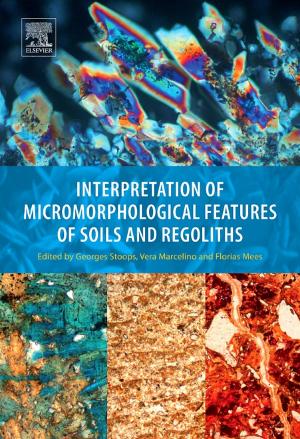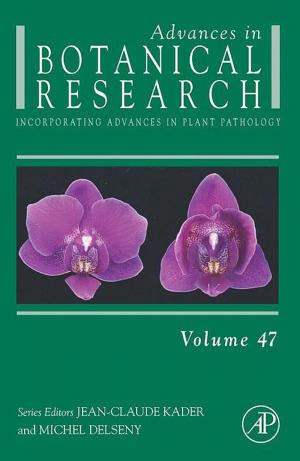| Author: | Gregory Roos, Cathryn Roos | ISBN: | 9780128018095 |
| Publisher: | Elsevier Science | Publication: | October 15, 2014 |
| Imprint: | Academic Press | Language: | English |
| Author: | Gregory Roos, Cathryn Roos |
| ISBN: | 9780128018095 |
| Publisher: | Elsevier Science |
| Publication: | October 15, 2014 |
| Imprint: | Academic Press |
| Language: | English |
Organic Chemistry Concepts: An EFL Approach provides an introductory overview of the subject, to enable the reader to understand many critical, experimental facts. Designed to cover a single-semester course or a needed review on the principles of Organic Chemistry, the book is written and organized for readers whose first language is not English. Approximately 80% of the words used are drawn from the list of the 2,000 most common English words; the remaining 20% includes necessary technical words, common chemistry terms, and well-known academic words (per the Academic Word List). The book has been class-tested internationally as well as with native English speakers, and differs from other introductory textbooks in the subject both in its coverage and organization, with a particular focus on common problem areas. Focused on a limited number of functional classes, Organic Chemistry Concepts: An EFL Approach introduces those organic compounds early in the book. Once readers have a foundation of the concepts and language of organic chemistry, they can build from that knowledge and work with relatively complex molecules, such as some natural product types covered in a later chapter. The book describes basic level reaction mechanisms when instructive, and illustrations throughout to emphasize the 3D nature of organic chemistry. The book includes multiple pedagogical features, such as chapter questions and useful appendices, to support reader comprehension.
- Covers all primary concepts in accessible language and pedagogical features, worked examples, glossary, chapter questions, illustrations, and useful summaries
- Builds a foundation of key material through a structured framework from which readers can expand their understanding
- Contains class-tested content written in a straightforward and accessible manner for non-native English speakers
Organic Chemistry Concepts: An EFL Approach provides an introductory overview of the subject, to enable the reader to understand many critical, experimental facts. Designed to cover a single-semester course or a needed review on the principles of Organic Chemistry, the book is written and organized for readers whose first language is not English. Approximately 80% of the words used are drawn from the list of the 2,000 most common English words; the remaining 20% includes necessary technical words, common chemistry terms, and well-known academic words (per the Academic Word List). The book has been class-tested internationally as well as with native English speakers, and differs from other introductory textbooks in the subject both in its coverage and organization, with a particular focus on common problem areas. Focused on a limited number of functional classes, Organic Chemistry Concepts: An EFL Approach introduces those organic compounds early in the book. Once readers have a foundation of the concepts and language of organic chemistry, they can build from that knowledge and work with relatively complex molecules, such as some natural product types covered in a later chapter. The book describes basic level reaction mechanisms when instructive, and illustrations throughout to emphasize the 3D nature of organic chemistry. The book includes multiple pedagogical features, such as chapter questions and useful appendices, to support reader comprehension.
- Covers all primary concepts in accessible language and pedagogical features, worked examples, glossary, chapter questions, illustrations, and useful summaries
- Builds a foundation of key material through a structured framework from which readers can expand their understanding
- Contains class-tested content written in a straightforward and accessible manner for non-native English speakers















